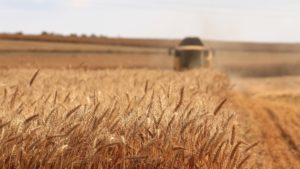For people with IBS, knowing what your triggers are can give you freedom to have a wonderful holiday. Holidays and all vacations in general leave people overwhelmed. To feel your best, know which foods make you feel badly and what to do in order to have the best time while traveling.
Foods triggers for IBS:
Because IBS is different for everyone, know what makes your individual case of IBS flare up. By now if you have been diagnosed with IBS, you should have been advised to track what you eat. Doing this can greatly increase the likelihood of pinning down which foods flare up your IBS.
Once the foods that flare up your IBS are written down, you can work on keeping problems such as constipation, diarrhea, belly pain, and bloating to a minimum. Some foods can make IBS related constipation much worse. These foods include breads and cereals made with refined grains. Refined grains are not whole grains.
What exactly are whole grains, and how are they different than refined grains? Whole grains are the original in tact grain, as grown by the grain plant. Refined grains have been processed, which is why it is called refined.
Whole Grains:
 The original grains contains fiber and other nutrients. Physicians and dietary specialists recommend whole grains for this reason. It is important to eat whole grains to provide your body with the nutrients it needs in order to keep your body’s bowels moving correctly. Otherwise, you will have constipation. For example, baked goods require refined grain flour to make them light and fluffy.
The original grains contains fiber and other nutrients. Physicians and dietary specialists recommend whole grains for this reason. It is important to eat whole grains to provide your body with the nutrients it needs in order to keep your body’s bowels moving correctly. Otherwise, you will have constipation. For example, baked goods require refined grain flour to make them light and fluffy.
The kernel is the part of the grain that is harvested. It contains three parts: the bran, the endosperm, and the germ. The endosperm is the largest part of the kernel. The germ is the smallest. All three parts of the kernel contains nutrients, but the germ is the only part that contains healthy fats. The bran contains most of the kernel’s fiber.
Whether whole grain flour is gluten-free or from any type of grain, it contains all three parts of the kernel. It is all grained together. Refined grain floor only has the endosperm. The process to make refined flour removes the bran and germ.
Why refined grains are not good for IBS patients:
 The advantages of using refined grain flour is that it makes goods light and fluffy. For bakers and food product manufacturers, the good outweighs the bad, but they are not eating the food. You should put your health before taste or texture if you’d like enjoy your holidays.
The advantages of using refined grain flour is that it makes goods light and fluffy. For bakers and food product manufacturers, the good outweighs the bad, but they are not eating the food. You should put your health before taste or texture if you’d like enjoy your holidays.
Whole grain has many advantages over refined grains. Whole grain flour has fibrous bran and the nutrient filled germ. It also has far more B vitamins, minerals, and fiber than refined grains have. Manufacturers may add vitamins and minerals back into refined flour, but they cannot add the fiber in because it would ruin the texture and shorten its shelf life.
Thank you for reading this week’s blog. Next week, we will continue on the topic of foods to avoid for controlling IBS symptoms by informing you of more foods to avoid. Stay tuned for more.
Make an appointment with Gastroenterology Consultants of Central Florida today to discuss which foods flare up IBS.
Staff Writer
